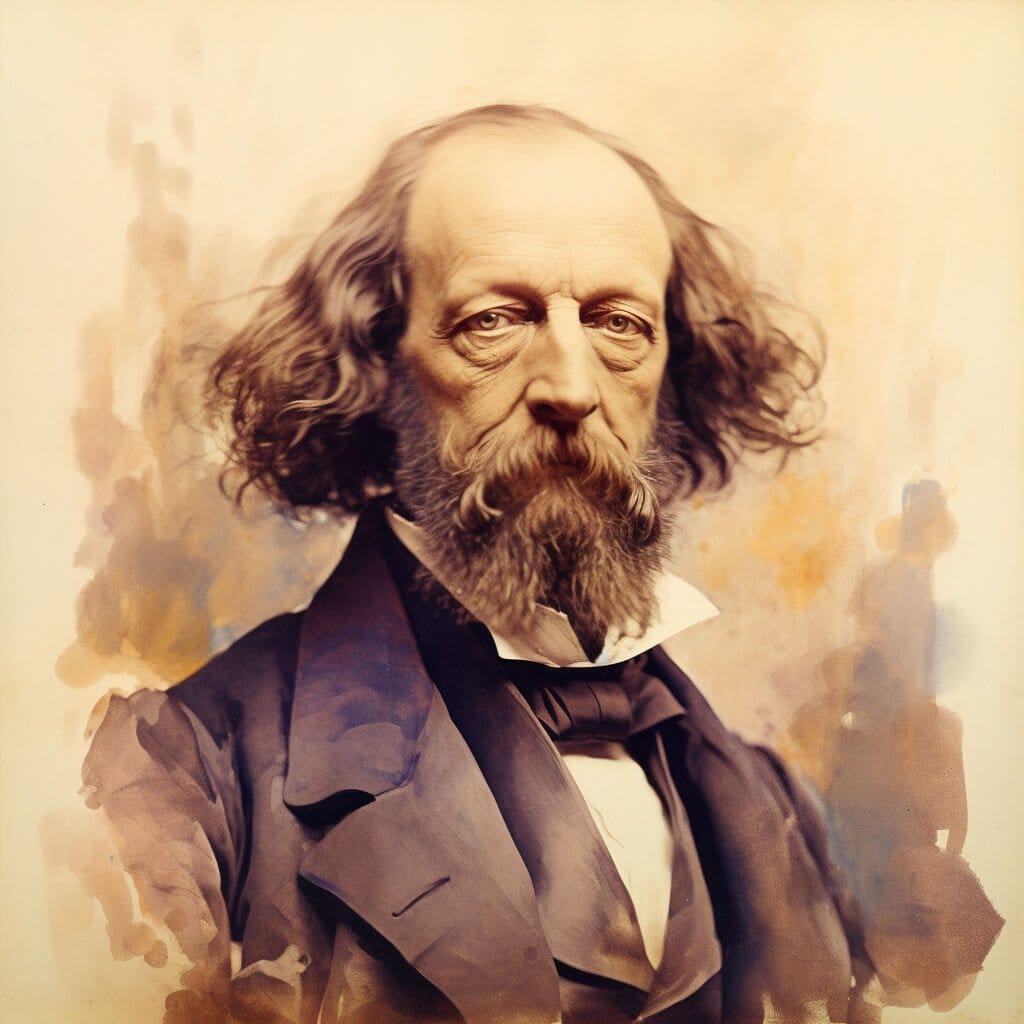Facts about Alfred Lord Tennyson Of American Poet
- Poetic Achievement: Tennyson’s poetic accomplishments are central to his legacy. His mastery of language, vivid imagery, and keen understanding of human emotions contributed to the evolution of Victorian poetry. Tennyson’s works, spanning a wide range of themes and styles, continue to be studied and appreciated for their artistic merit.
- Exploration of Universal Themes: Tennyson’s poetry delved into universal themes such as love, loss, grief, the passage of time, and the complexities of human nature. His ability to capture the essence of these themes resonated with a broad audience, making his work relatable and enduring.
- Influence on Victorian Literature: As the Poet Laureate for over four decades, Tennyson played a crucial role in shaping the literary landscape of the Victorian era. His poetry reflected and responded to the cultural and social changes of the time, providing a nuanced perspective on issues such as industrialization, science, and the tension between tradition and progress.
- Arthurian Legacy: Tennyson’s reimagining of Arthurian legends in “Idylls of the King” has had a lasting impact on the cultural perception of the Arthurian myth. His portrayal of King Arthur and the Knights of the Round Table influenced later interpretations in literature, art, and popular culture.
- National Poet: Tennyson’s role as Poet Laureate made him a prominent figure in Victorian society. His poems were often commissioned for significant national events, and he became a voice that articulated the collective sentiments of the time. His poem “The Charge of the Light Brigade” is a prime example of his ability to capture and commemorate national events.
- Literary Awards and Recognition: Tennyson received various honors during his lifetime, including the Order of Merit in 1884. His elevation to the peerage as Baron Tennyson of Aldworth and Freshwater in 1883 reflected not only his literary achievements but also the recognition of his cultural impact.
- Continued Academic Interest: Tennyson’s works continue to be studied in academic settings, ensuring that his legacy is passed down to new generations of readers and scholars. His poems are frequently included in literature curricula, and scholars analyze his contributions to the Romantic and Victorian literary traditions.
- Inspiration for Later Poets: Tennyson’s innovative use of language, poetic forms, and exploration of psychological depths have inspired later poets. His influence can be traced in the works of poets such as W.B. Yeats and T.S. Eliot, who acknowledged Tennyson’s impact on their own poetic endeavors.
- 1809 (August 6): Alfred Tennyson is born in Somersby, Lincolnshire, England, the fourth of twelve children.
- 1827: Tennyson begins his studies at Trinity College, Cambridge, where he forms close friendships with Arthur Hallam and Richard Monckton Milnes.
- 1830: Tennyson publishes his first collection of poetry, “Poems, Chiefly Lyrical.”
- 1831: The sudden death of Tennyson’s close friend Arthur Hallam profoundly influences his poetry and life.
- 1832: Tennyson publishes “The Lady of Shalott,” a narrative poem inspired by Arthurian legend.
- 1842: Tennyson publishes a second collection, “Poems,” which includes the famous poem “Ulysses.”
- 1850: Tennyson publishes “In Memoriam,” a long elegy dedicated to the memory of Arthur Hallam. He is appointed Poet Laureate following the death of William Wordsworth.
- 1855: Tennyson publishes “Maud,” a dramatic monologue exploring themes of love and war.
- 1859-1885: Tennyson publishes “Idylls of the King,” a series of narrative poems reimagining the Arthurian legends.
- 1861: Tennyson writes the funeral ode “Ode on the Death of the Duke of Wellington.”
- 1864: Tennyson’s financial difficulties lead to the publication of “Enoch Arden” to alleviate financial strain.
- 1883: Tennyson is raised to the peerage as Baron Tennyson of Aldworth and Freshwater.
- 1884: Tennyson is appointed to the Order of Merit.
- 1889: Tennyson publishes “Crossing the Bar,” a reflective poem contemplating the end of life.
- 1892 (October 6): Alfred Lord Tennyson passes away at the age of 83.
- 1892: Tennyson is buried in the poets’ corner of Westminster Abbey.
ADVERTISEMENT
ADVERTISEMENT
ADVERTISEMENT

















